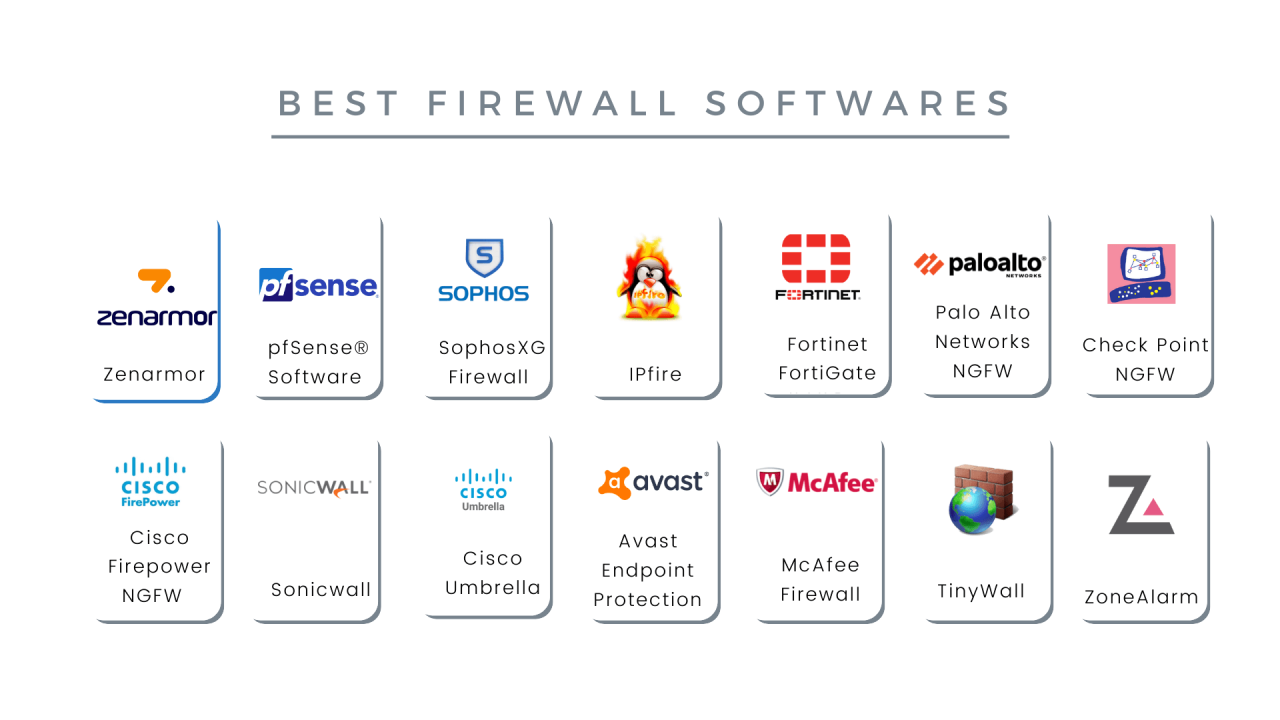Did you know that a cyberattack occurs every 39 seconds? In today’s hyper-connected world, your digital life is constantly under threat, making robust protection essential. Firewall programs act as the first line of defense, meticulously screening incoming and outgoing network traffic to block malicious software and unauthorized access.
But with so many options available, choosing the “best” firewall program can feel overwhelming. This article cuts through the noise, providing a clear and concise guide to the top firewall solutions on the market. We’ll explore their key features, strengths, and weaknesses, helping you determine which program best suits your specific needs and security priorities.
Get ready to fortify your digital fortress and safeguard your valuable data with confidence.
Best Firewall Programs: Shielding Your Digital Life
In today’s interconnected globe, safeguarding your digital footprint is non-negotiable. Firewalls, the vigilant guardians of your system, stand as the first line of defense against unwelcome cyber intrusions. Let’s explore the top contenders in firewall protection.
Think of a firewall as a gatekeeper for your computer. It examines incoming and outgoing network traffic, blocking anything that appears suspicious based on predefined rules. This ensures that only authorized data passes through.
Selecting the correct firewall can feel overwhelming. Several solutions exist, each possessing its distinct strengths and weaknesses. This guide simplifies the selection process, focusing on user-friendliness, security, and overall effectiveness.
We’ll delve into various software and hardware firewalls, highlighting the aspects that make them outstanding. Get ready to navigate the firewall arena with confidence, securing your precious data from online threats.
Understanding Firewall Basics: The Digital Gatekeeper
A firewall acts as a barrier between your computer and the outside world. It monitors network traffic, allowing only authorized communication while blocking potentially dangerous attempts.
Firewalls analyze packets of data, comparing them to a set of rules. Those that match the rules are allowed through, while those that do not are blocked. This is crucial for keeping your information safe.
There are two key kinds: software, designed for home computers, and hardware, typically found in routers protecting entire networks. They each have their place and function, depending on your needs.
The purpose is to stop hackers, malware, and other malicious actors from gaining access to your system. A correctly configured firewall is essential for online safety, offering a crucial layer of protection.
It’s important to keep your firewall’s rules updated to reflect the evolving threat landscape. Regular maintenance ensures the ongoing effectiveness of your protection.
Top Software Firewall Programs: Personalized Defense

Software firewalls are designed for personal computers and are relatively easy to set up. They offer a tailored layer of security, protecting your machine from harmful internet traffic.
Windows Defender Firewall: Included with Windows, it provides basic, but useful, protection right out of the box. It’s a solid, uncomplicated option for novice users. It offers essential protection and is conveniently pre-installed.
Comodo Firewall: Known for its robust features and proactive approach, Comodo offers superior protection with its auto-sandbox technology. It’s a good choice for users who need advanced features.
ZoneAlarm Free Firewall: This well-known program offers two-way firewall protection, monitoring both incoming and outgoing traffic. Its user-friendly interface makes it a strong contender.
Bitdefender Total Security: While a full security suite, Bitdefender’s firewall component offers great intrusion detection and prevention. Easy to use, it protects from various threats.
When choosing, consider your technical expertise and security requirements. Each solution has its own merits, so carefully assess what aligns best with your needs.
Hardware Firewalls: Network-Wide Protection
Hardware firewalls are commonly integrated into routers and other network devices, safeguarding your entire home or office network from external threats. These are critical for multi-device protection.
They inspect network traffic before it even reaches individual devices. This central point of control provides a layer of protection that software firewalls alone cannot offer.
Most modern routers have built-in firewalls that provide basic security. These often come pre-configured, providing initial protection as soon as you set up your network.
Advanced hardware firewalls, often found in business settings, provide deeper inspection and control. These more sophisticated solutions offer capabilities like intrusion detection and prevention.
While not as customizable as software firewalls, hardware options offer simplicity and network-wide defense. Configuring these usually involves accessing your router’s settings.
Choosing the Right Firewall: A Step-by-Step Guide
Selecting the right firewall hinges on assessing your unique needs and threat landscape. Do you need protection for a single device or an entire network? Determine your coverage needs.
Consider your technical expertise. Are you comfortable configuring complex settings, or do you prefer a user-friendly interface? Choose a system that matches your comfort level.
Think about the kinds of threats you are most concerned about. Are you worried about malware, hackers, or both? Different firewalls offer varying levels of defense against specific threats.
Don’t forget to read reviews and compare features. Explore the offerings from different vendors, examining elements like intrusion detection, reporting, and ease of use.
Lastly, make sure that it’s up to date. Keep in mind that staying up-to-date with the latest security patches and updates is crucial for maintaining the effectiveness of your firewall.
Firewall Best Practices: Maintaining a Strong Defense
A firewall is only effective if correctly configured and maintained. Start by ensuring that your firewall is always enabled. Sounds obvious, but it’s easily overlooked.
Regularly update your firewall’s software to benefit from the latest security patches and threat intelligence. This is paramount for protecting against emerging threats.
Review and refine your firewall rules periodically. Remove any outdated or unnecessary rules. This helps to streamline performance and reduce the risk of vulnerabilities.
Pay attention to your firewall logs. Monitoring these logs can help you identify potential security incidents and fine-tune your firewall settings.
Practice safe browsing habits. No firewall can protect you from every threat if you click on suspicious links or download risky files. Maintain your own responsible online behavior.